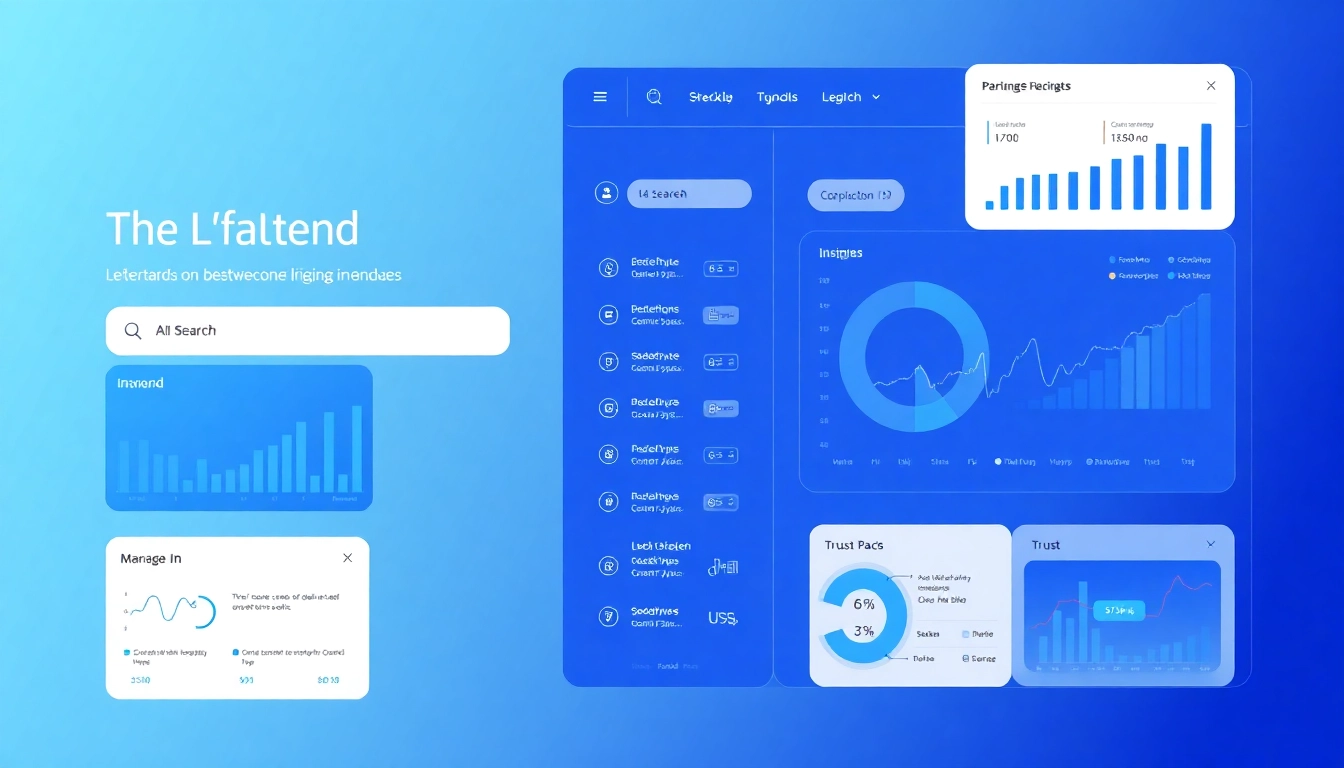Understanding AI Opinion Search
Definition and Importance
AI Opinion Search refers to utilizing artificial intelligence technologies to facilitate the searching, analyzing, and aggregating of opinions across various data sources. This innovative approach not only streamlines the research process but also provides enhanced insights into a topic by consolidating varying perspectives from a multitude of sources. By leveraging AI algorithms, researchers and professionals can access significant data with greater efficiency, uncover hidden patterns, and generate actionable insights. This is particularly valuable in sectors such as academia, market research, and policy-making, where understanding diverse viewpoints is crucial.
How AI Opinion Search Works
AI Opinion Search employs sophisticated machine learning algorithms and natural language processing (NLP) techniques to sift through vast repositories of text data. These tools analyze sentiment, categorize opinions, and even evaluate the credibility of sources. The process typically involves:
- Data Collection: Aggregating information from diverse sources such as academic papers, social media, news articles, and blogs.
- Data Processing: Utilizing NLP to interpret language nuances, identify key themes, and organize information based on relevancy.
- Analysis and Output: Summarizing findings in a user-friendly format, often highlighting major opinions and supporting evidence.
Tools such as AI Opinion search exemplify this technology by making complex information streamlined and accessible.
Use Cases in Various Fields
The versatility of AI Opinion Search transcends numerous industries. Here are a few notable applications:
- Academic Research: Researchers can use AI tools to identify not only existing literature but also the consensus and disagreements in the field, leading to more nuanced research questions.
- Market Analysis: Businesses can analyze customer opinions about products or services, enabling them to refine their offerings based on consumer sentiment.
- Policy Making: Government entities can gauge public opinion on legislation by analyzing views from social media and news platforms.
Benefits of Utilizing AI Opinion Search
Enhanced Research Efficiency
One of the most significant advantages of AI Opinion Search is the dramatic increase in research efficiency. Traditional methods often require extensive manual effort to sift through literature or data, which can be both time-consuming and error-prone. AI-driven tools expedite this process by automating data collection and schema generation, allowing researchers to focus on higher-level analysis rather than tedious data aggregation.
Access to Diverse Perspectives
AI Opinion Search tools provide access to a broader range of viewpoints than a single researcher might typically encounter. By aggregating opinions from varied stakeholders—whether they be academics, practitioners, or the public—these tools enrich the understanding of complex topics and foster a more inclusive research environment.
Improved Decision-Making Processes
Incorporating the insights generated from AI Opinion Search into decision-making processes leads to more informed and transparent outcomes. Whether in corporate strategy or scholarly research, having access to systematically analyzed opinions ensures that decisions reflect the needs and sentiments of a diverse audience. This can catalyze more successful interventions and programs tailored to specific audiences.
Comparing Top AI Opinion Search Tools
Consensus
Consensus is an innovative academic search engine powered by AI, designed to help researchers find answers in scientific literature quickly. Utilizing a unique algorithm, it focuses on presenting research summaries that distill key insights, improving the efficiency of literature review processes. Users can benefit from a database that prioritizes scientifically rigorous studies while providing a user-friendly interface.
Semantic Scholar
Semantic Scholar leverages cutting-edge AI to enhance the research experience by understanding the semantics behind academic literature. It provides users with tools that cite papers automatically and highlight impactful contributions in their fields. The platform aims to assist scholars in discovering relevant literature efficiently and effectively, making it invaluable for fast-paced research environments.
Scite and Elicit Overview
Scite is tailored for researchers seeking to elevate their work with a unique feature that shows how a paper has been cited—whether it supports or critiques the claim. This nuanced exploration increases the reliability of the sources presented. On the other hand, Elicit serves as a versatile research assistant, capable of summarizing, extracting data, and facilitating discussions around over 125 million papers. Both tools emphasize enhancing the quality and depth of research through intelligent summarization and data extraction.
Best Practices for Effective Usage
Identifying Reliable Sources
In the realm of AI Opinion Search, the credibility of sources is paramount. Users should utilize tools that implement robust algorithms for source evaluation. Assessing factors such as publication year, journal impact factor, author credentials, and citation count can help ensure the reliability of the data accessed. Additionally, some tools utilize machine learning to rank sources based on historical accuracy, providing an added layer of confidence in collected data.
Formulating Effective Queries
The effectiveness of AI Opinion Search is greatly influenced by the specificity of user queries. To maximize results:
- Use clear and concise language.
- Incorporate relevant keywords and phrases.
- Aim for well-defined questions that guide the algorithm toward the desired outcome.
Integrating Insights into Your Work
After utilizing AI Opinion Search tools, researchers must effectively integrate the insights gained into their work. This involves synthesizing findings into coherent arguments or literature reviews and clearly citing AI-generated data to maintain transparency. Regular collaboration among teams can enhance this integration, allowing for a broad application of insights across different divisions.
The Future of AI Opinion Search Technology
Evolution of AI Algorithms
The future of AI Opinion Search is bright, with continual advancements in algorithms that enhance natural language processing and user interaction. Future iterations may incorporate real-time data collection and analysis capabilities, providing users with up-to-the-minute insights into rapidly evolving topics. Moreover, as AI normalization persists, tools may increasingly adapt based on user behavior and feedback, personalizing search experiences.
Potential Ethical Considerations
As with any technology, ethical considerations surrounding AI Opinion Search are crucial. Potential challenges include data privacy, the risk of biased algorithms, and the necessity of informed consent when aggregating public opinions. Ongoing discussions within the tech community and academic circles will shape how these concerns are addressed, ensuring that AI tools promote fairness and transparency.
Predictions for User Engagement
Experts predict that as AI Opinion Search tools evolve, user engagement will similarly expand, driven by increased accessibility and the gamification of search experiences. Enhanced visual presentations of data, predictive analytic tools, and user-friendly interfaces will likely attract a broader audience, from novices to seasoned researchers. Greater interactive components, such as chatbots and virtual querying interfaces, may also further humanize the digital research experience.



